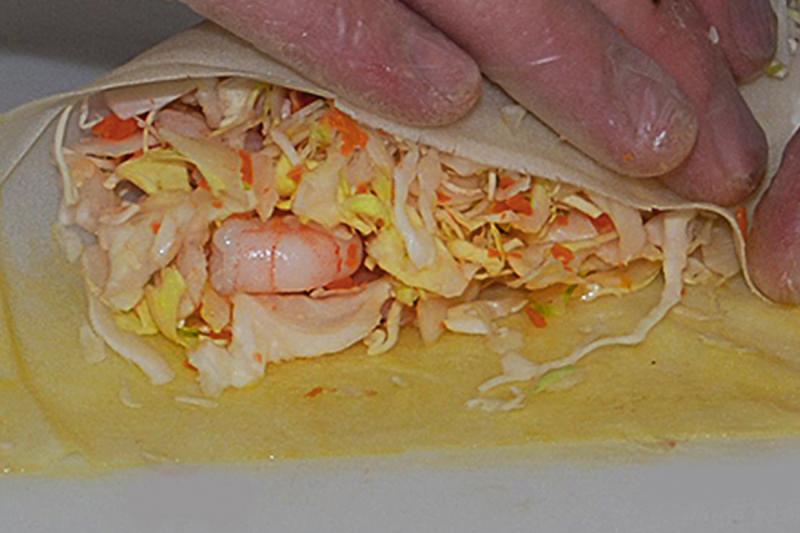Two of my favorite quotes about food come from the groundbreaking TV chef Julia Child. The first is, “Life itself is the proper binge.” It’s hanging on the wall in my kitchen and always makes me smile.
I’m reminded of the second quote every time a Cape Gazette reader sends me an email about the cleanliness of a restaurant and/or food-handling procedures. Julia weighed in on the subject: “It’s so beautifully arranged on the plate; you know someone’s fingers have been all over it.” In spite of that inescapable truth, the fact is that the great majority of foodborne ailments occur at home - not in restaurants.
Of course, as we stare at those kitchen doors blocking our view, it’s natural to wonder how our food remains wholesome and safe during the often-convoluted journey to your table. Restaurants - the good ones, that is - follow a logical sequence of food safety procedures known as HACCP. From the moment a seed is planted or an animal is born (or hatched), Hazard Analysis and Critical Control Points are identified and monitored to ensure that the risk of contamination remains as low as possible. On the restaurant level, stringent procedures for storing, cooking and serving become key elements in the training of managers, cooks and even servers at “critical control points” i.e., doorknobs, refrigerator storage, bathroom visits, hand washing, etc.
Interestingly, one of the main subjects my emailers bring up is the use of gloves when handling food. In spite of what one might think, the state health inspector for one of my former restaurants maintained that gloves can give workers a false sense of security when handling non-food items such as money, doorknobs, cans, boxes, etc. The next time you order from a carryout, food truck or a stand at an outdoor event, watch the preparer’s hands. Does he or she handle your money and make change wearing the same gloves that touched your corn dog or taco? In the words of my health inspector, “The only things those gloves keep clean are their hands.”
Of course, that doesn’t mean gloves aren’t important. A couple of weeks ago I had the pleasure of operating an action station at Touch of Italy’s Carnevale! event. I was dredging chicken (covering it with seasoned flour) and frying it. Martin Masisiak, one of Touch’s head chefs, reminded me to wear gloves - and a cap - during the event. The last thing I heard when exiting the kitchen with 200 raw chicken wings was, “And don’t touch anything other than the food without changing those gloves!” Now I know why I write about food and don’t cook it for a living.
I went through half a box of FoodHandler gloves, but nobody got sick, and when the event ended, everybody left in a vertical position. As ticketholders reveled in the abundance of food, wine and beer, Martin glided from action station to action station to verify that we were all following his strict sanitation rules. The last thing on his mind was the state health department. He was concerned with the safety of his patrons, and consequently, the longevity of the restaurant where he makes his living. It just so happens that his rules are the same as the health department’s. When I attended the ServSafe Program during my restaurant ownership days, I’ll never forget my instructor saying, “Each and every rule you will learn about food sanitation, safety and foodborne illness was created out of an actual situation where people got sick - or worse. We don’t make this stuff up.”
But there are only so many health inspectors, and they can’t be everywhere at the same time. So let’s face it: Much of this boils down to trust. You trust the server or line cook or salad prep person or fry cook or expeditor to care enough about his job to scrub his hands every time he grabs a doorknob or visits the rest room. You rely on the restaurant owner or manager to operate in her best interest by making it clear to employees that the business - their livelihood - depends on vigilant food-handling.
Happily, all this attention to science and regulation is working, and chances are good that your restaurant experiences will be nontoxic. In fact, ongoing epidemiological studies have shown that food served by the major fast-food chains is safer than that prepared in your own home. It’s no secret that the customers’ sense of well-being is vital to success in this business of eating. As a result, restaurateurs don’t talk much about food safety and sanitation. But the good ones think about it all the time.
Bob Yesbek is a serial foodie and can be reached at byesbek@CapeGazette.com.























































